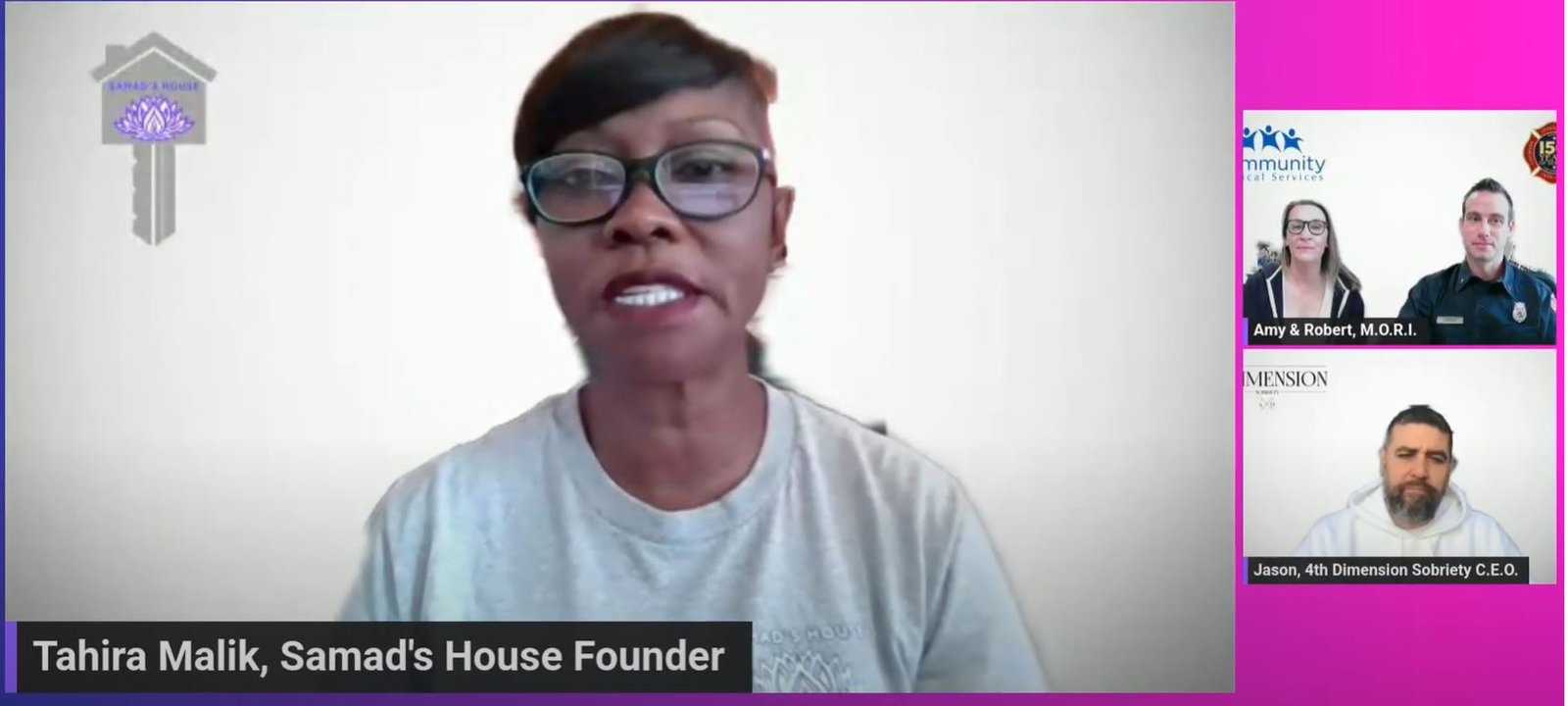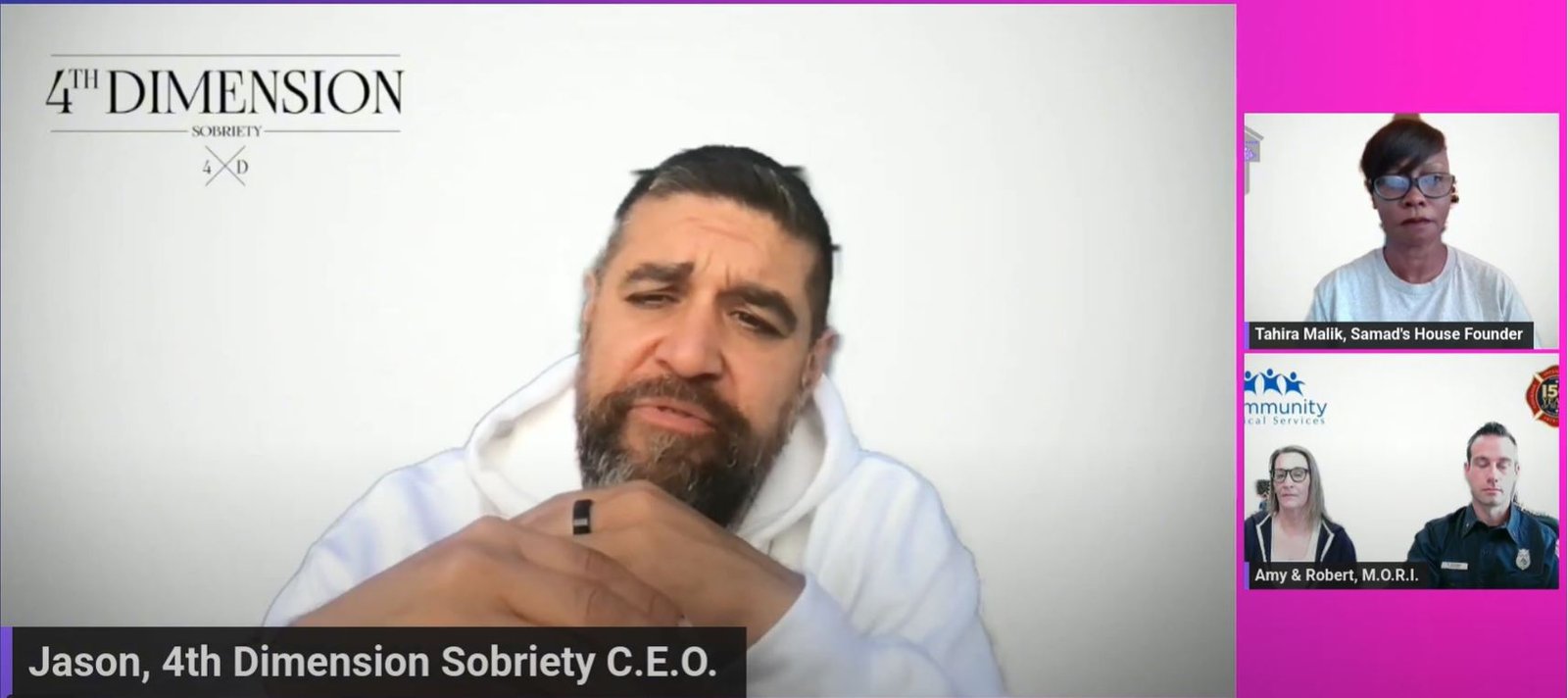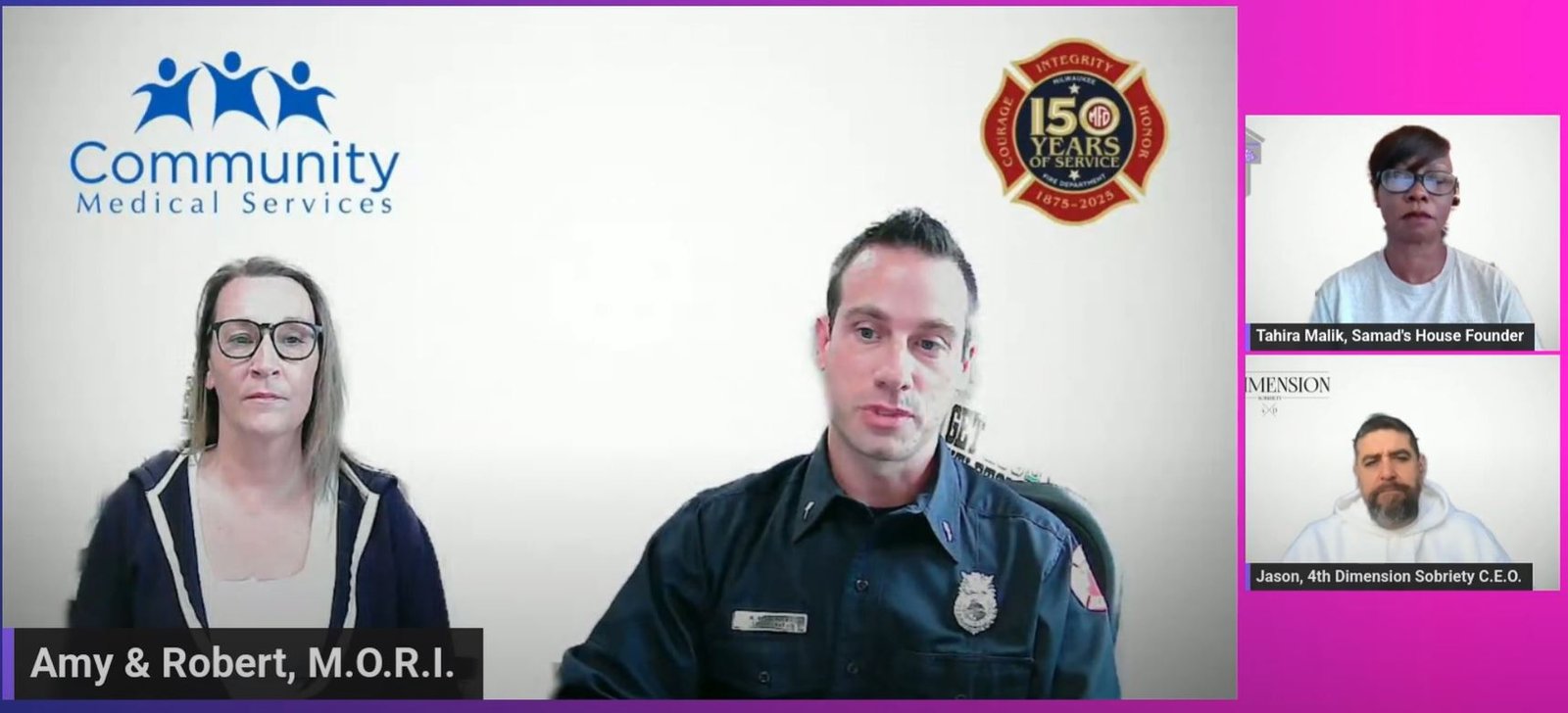Podcast reveals an unfiltered look at the overdose crisis, the life-saving impact of harm reduction services, and the commitment of those on the frontlines
Samad’s House, a vital community resource in Milwaukee, is launching Voices of the Front Lines, a powerful new podcast hosted by its founder, Tahira Malik. The series dives deep into the alarming surge in drug overdoses in Milwaukee, particularly within Black communities, while shining a light on supportive harm reduction services, such as providing naloxone and fentanyl test strips that are saving lives and driving change.
The podcast comes at a critical time. In 2024, 450 people in Milwaukee County lost their lives to overdoses. Yet, amidst this crisis, there is hope. Programs like Samad’s House are leading the charge with credentialed day treatment, intensive outpatient services, and compassionate harm reduction services.
“Through educational workshops on substance use disorders and mental health, Samad’s House empowers women to achieve lasting sobriety, rebuild their families, and reintegrate into society with dignity,” said Malik. “By combining harm reduction services with mental health support, we’re helping women make safer choices while honoring their autonomy.”

The podcast is dedicated to amplifying the voices of those on the front lines—street outreach workers, peer support specialists, and advocates for supportive and compassionate care —who tirelessly work to save lives.
“Together, we’ll share our challenges, triumphs, and the real-world impact of harm reduction in our communities,” Malik explained, as she discussed the podcast. “Each episode will spotlight personal stories, pivotal events, and the urgent need for equitable funding from the government, private sector, and philanthropic organizations to support programs like Samad’s House. These programs provide the tools and opportunities for individuals to recover, thrive, and create their own success stories.”
The first episode of Voices of the Front Lines debuts on Tuesday, October 14. At the beginning of the podcast, Malik shares her deeply personal journey from addiction and incarceration to recovery and the creation of Samad’s House, now one of the Midwest’s leading sober living facilities for women and harm reduction hubs.
“Harm reduction strategies are crucial in supporting recovery, preventing overdoses, and fostering a compassionate community environment,” Malik said in the podcast. “I am fully committed to stopping overdose deaths and helping women recover, thrive, and succeed in achieving their goals. And so are the guests who are gathered here today.”
Joining Malik in the inaugural episode are three remarkable guests:
- Jason Gonzalez, founder and CEO of 4th Dimension Sobriety, a Milwaukee-based recovery community rooted in spirituality, accountability, and service.
- Robert Rehberger, a lieutenant with the Milwaukee Fire Department and a key member of the Milwaukee Overdose Response Initiative (MORI), which partners with public health agencies, first responders, and community organizations to reduce overdoses.
- Amy Molinsky, a clinical substance use counselor and certified peer support specialist who works with individuals who have experienced non-fatal overdoses through MORI.
Together, they offer a raw and unfiltered look at the overdose crisis and the life-saving impact of compassionate harm reduction services.


The episode delves into the day-to-day realities of those working to combat the overdose epidemic. Rehberger, who has spent five years with MORI, described his team’s approach: “We review non-fatal overdoses from the last 24-48 hours and then go out to meet those individuals. You never really know what’s going to happen. Sometimes people ask for help getting to treatment centers, or they need clothes or food. We do whatever we can to make their lives better.”
Gonzalez shared the challenges of supporting overdose survivors at his recovery center. “It’s often hard for (survivors) to be with people after an overdose. We focus on the smaller needs first—food, clothing, hygiene—and then work on the bigger ones.”
Molinsky highlighted the heartbreaking lack of treatment facilities. “It’s incredibly challenging when someone says, ‘I want help today,’ and we can’t get them into treatment immediately. In recovery, timing is everything. If someone is ready now, that could change in 30 minutes. We need to act when they’re ready.”
Rehberger reflected on why he embraces harm reduction’s supportive care approach. “When I started on the Fire Department, we’d see the same people overdosing over and over again. Then I joined MORI and saw the success of harm reduction. Maybe it starts small—testing substances, for example—but it can grow into something bigger, like choosing not to use at all. Harm reduction gives people the chance to stay alive, “and that’s essential.
Throughout the episode, the guests share candid stories about the challenges and triumphs of working on the front lines. They also emphasize the urgent need for more resources and equitable funding to expand harm reduction programs and treatment facilities.
After its debut on October 14, Voices of the Front Lines will be available on Spotify, Apple Podcasts, Amazon, and all major podcast platforms. Episodes can also be streamed directly from the Samad’s House website at www.samadshouse.org.
By amplifying the voices of those fighting to save lives, Voices of the Front Lines aims to inspire action, foster understanding, and bring hope to communities grappling with the overdose crisis.



